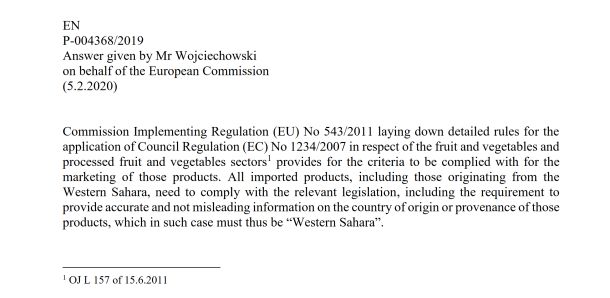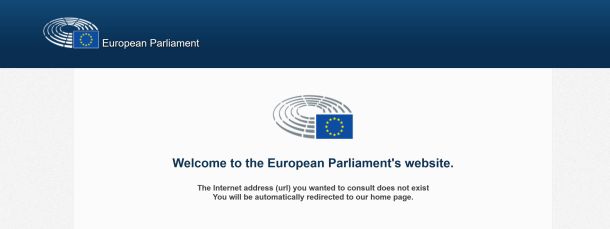
The Official Journal of the European Union has published the appeal brought by the EU Council against the Court of Justice of the EU’s decision to annul the EU-Morocco agricultural agreement insofar as it applies in Western Sahara.
The Official Journal of the European Union published the appeal on 29 March 2016. Read the text below.
Essentially, Council argues that the Court should not have granted Polisario legal standing, the legal basis for Polisario to be able to bring actions before the Court. In addition, Council argues that the Court has erred in its interpretation of the applicable law. Council particularly disagrees that it has any responsibility to examine the impact of the agreement on the human rights situation in Western Sahara, and that it had to verify whether the agreement could be carried out to the detriment of the inhabitants of Western Sahara and their fundamental rights.
The Court of Justice of the European Union annulled the agricultural agreement between the EU and Morocco on 10 December 2015. In response, Morocco broke off all communications with the EU. Council officially brought on the appeal on 19 February 2016.
Appeal brought on 19 February 2016 by the Council of the European Union against the judgment of the General Court (Eighth Chamber) delivered on 10 December 2015 in Case T-512/12 Polisario Front v Council
(Case C-104/16 P)
(2016/C 111/20)
Language of the case: French
Parties
Appellant: Council of the European Union (represented by: A. de Elera-San Miguel Hurtado and A. Westerhof Löfflerová, Agents)
Other parties to the proceedings: Popular Front for the liberation of Saguia-el-Hamra and Rio de Oro (Polisario Front), European Commission
Form of order sought
- set aside the judgment of the General Court in Case T-512/12;
- give final judgment in the matters which are the subject of the present appeal by dismissing the action for annulment brought by the Polisario Front (the ‘applicant’); and
- order the applicant to pay the costs incurred by the Council at first instance and in the present appeal.
Pleas in law and main arguments
In support of its appeal, the Council raises several pleas alleging errors of law.
First, the Council takes the view that the General Court has erred in law by holding that the applicant had the capacity to bring proceedings before the Courts of the European Union.
Second, it submits that the General Court erred in law by holding that the applicant was direct and individually concerned by the decision annulled.
Third, it criticises the General Court for having erred in law by basing the annulment on a plea which had not been raised by the applicant and with regard to which the Council was unable to express its views.
Fourth, the Council complains that the General Court erred in law by holding that the Council was required to examine the possible impact of the production activities concerning the products covered by the agreement concluded by the decision annulled on the human rights of the population of Western Sahara before adopting the decision annulled.
Fifth, the General Court erred in law by holding that the Council was required to examine whether there was evidence, under the agreement concluded by that decision, of the exploitation of the natural resources of the territory of Western Sahara under Moroccan control which may be carried out to the detriment of its inhabitants and may infringe their fundamental rights, before adopting the decision annulled.
Finally, the Council claims that the General Court erred in law by partially annulling the contested decision which had the effect of altering its substance.
EU Commission backtracks on labelling Western Sahara goods
What is EU's position on labelling of products from occupied Western Sahara? The EU Commission has now for the third time published a response to a parliamentary question on the matter, but the latest version fails to address the question.
Why does this EU statement keep disappearing?
A clarification by the EU Commission on labelling of products from Western Sahara was published, then removed, then published again and has now been removed again from EU websites.
EU reaffirms: Western Sahara products to be labelled as such
Two weeks ago, the EU Commission announced that products from Western Sahara should be labelled accordingly, only to withdraw that statement the very next day. Today, the Commission reaffirms its original position.
Spectacular backtracking by EU Commission on Western Sahara labelling
On 5 February 2020, the EU Commission announced that products from Western Sahara should be labelled accordingly. But about 24 hours later, all traces to that statement had been removed from EU websites.



